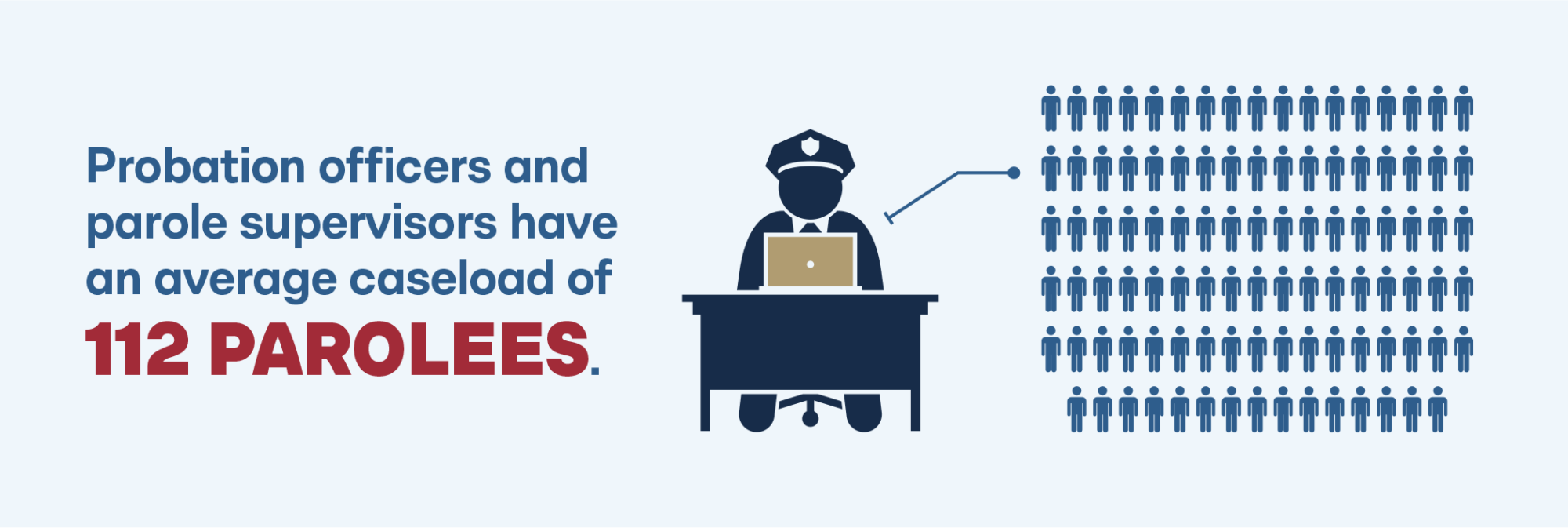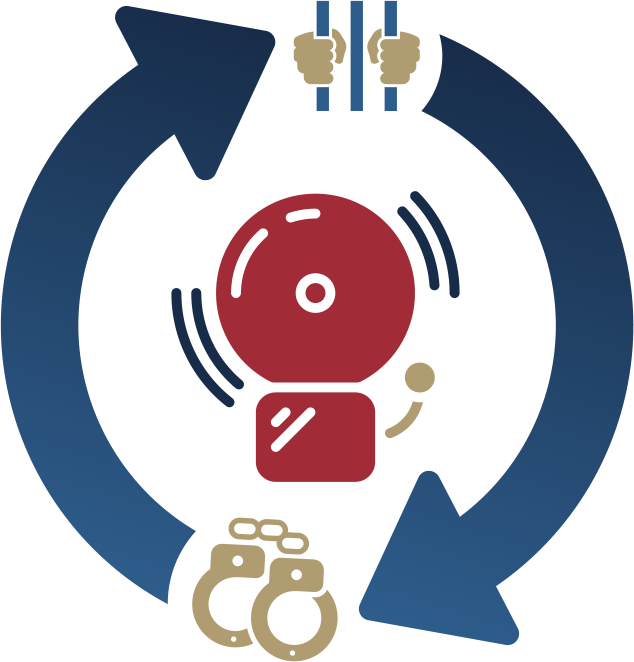
Earned Time Credits Support Safer Communities
The criminal justice system is failing.
Prisons and jails are overcrowded, probation officers and parole supervisors have unmanageable caseloads, and structural failures have fostered generational cycles of crime and incarceration.

Source: Martin, K., & Zettler, H. (2021). An Examination of Probation Officer Tasks by Officer-Caseload Type. Criminal Justice Policy Review, 32(7), 693-717.
For years, criminal justice experts and corrections officials alike have sounded the alarm about overcrowded prisons and jails, excessive supervision caseloads, and structural failures that keep generations of Americans in a cycle of crime and incarceration.
Policymakers from across the political spectrum cannot ignore the exploding costs of prison and the staggering rates of recidivism—both indicators of a system that is failing our society.

THE SOLUTION
States should reward successful, non-violent, low-risk probationers and parolees with credits of time—usually measured in days—towards their supervision sentences, allowing them to terminate their sentences earlier than expected. Time can be earned by meeting or exceeding expectations for stable employment, sobriety, maintaining housing, and so on.
States such as Arizona, Florida, Kentucky, and Utah have already demonstrated success with earned time credit policies.

WHY IT MATTERS

Earned time credits create powerful incentives for individuals to make meaningful progress toward rebuilding their lives while reducing recidivism and caseloads.

They encourage strong families and reinforce the importance of community—elements of life that many individuals lacked before entering the criminal justice system.
THE BOTTOM LINE:
Earned time credits encourage rehabilitation, improve public safety, and reduce strain on overloaded parole and probation officers.
Read more at ciceroinstitute.org/research/employment-based-earned-time-credits-in-adult-supervision